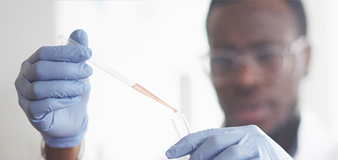The list of drugs and procedures that have been tried is endless but none of them have been scientifically validated to lead to effective improvements in sperm count. Some of these empirical treatments which have been tried without demonstrable success include the use of hCG, hMG or anitoestrogen therapies (clomiphene citrate, tamoxifen), testosterone administration, Testolactone, Bromocriptine, Kallikrein, Pentoxyfylline and artificial insemination with the husband’s sperm.
There has also been a lot of interest in the use of vitamins and mineral supplements such as vitamins E, C and Zinc. Vitamin E at moderate doses might reduce reactive oxygen species and be beneficial to some men and vitamin C apparently reduced agglutination(clumping together of cells) in numerous clinical trials. Although zinc concentrations are reduced in the seminal fluid of men with chronic infections of their prostate glands, supplementation with zinc does not appear to improve fertility.
Although studies have reported improvements in semen parameters’ following ligation of varicocoeles there has been no evidence of improvements in fertility subsequently. This means that even though we try a lot of treatment and operations, there is no effective treatment for male infertility and most couples remain childless unless they are able to achieve a pregnancy by themselves.
This was the situation until 1992 when the revolutionary technique of intra-cytoplasmic sperm injection (ICSI) was reported by Van Steirteghem and colleagues in Brussels. The objective of ICSI is not to cure the problem but to achieve a pregnancy despite the abnormalities. ICSI involves the picking up of a single sperm cell and using powerful microscopes to inject it directly into the egg. This process that is carried out outside the body during in-vitro fertilisation (IVF) leads to fertilisation of the egg which can then be cultured in the laboratory for transfer.


 From the moment you arrive, we hope to make your visit to any of our facilities as comfortable as possible.
From the moment you arrive, we hope to make your visit to any of our facilities as comfortable as possible.
 We are driven to always improve in everything we do, whether it is providing high quality service; behaving professionally and
respectfully; or striving to exceed international standards.
We are driven to always improve in everything we do, whether it is providing high quality service; behaving professionally and
respectfully; or striving to exceed international standards.
 We value open communication, transparency and doing what is in the best interest for the patient and our medical colleagues, which
means offering the best services and support that we know how.
We value open communication, transparency and doing what is in the best interest for the patient and our medical colleagues, which
means offering the best services and support that we know how.
 Refresh your knowledge and gain insights into the latest information in the field while earning a rock solid certificate of competency.
Refresh your knowledge and gain insights into the latest information in the field while earning a rock solid certificate of competency.

